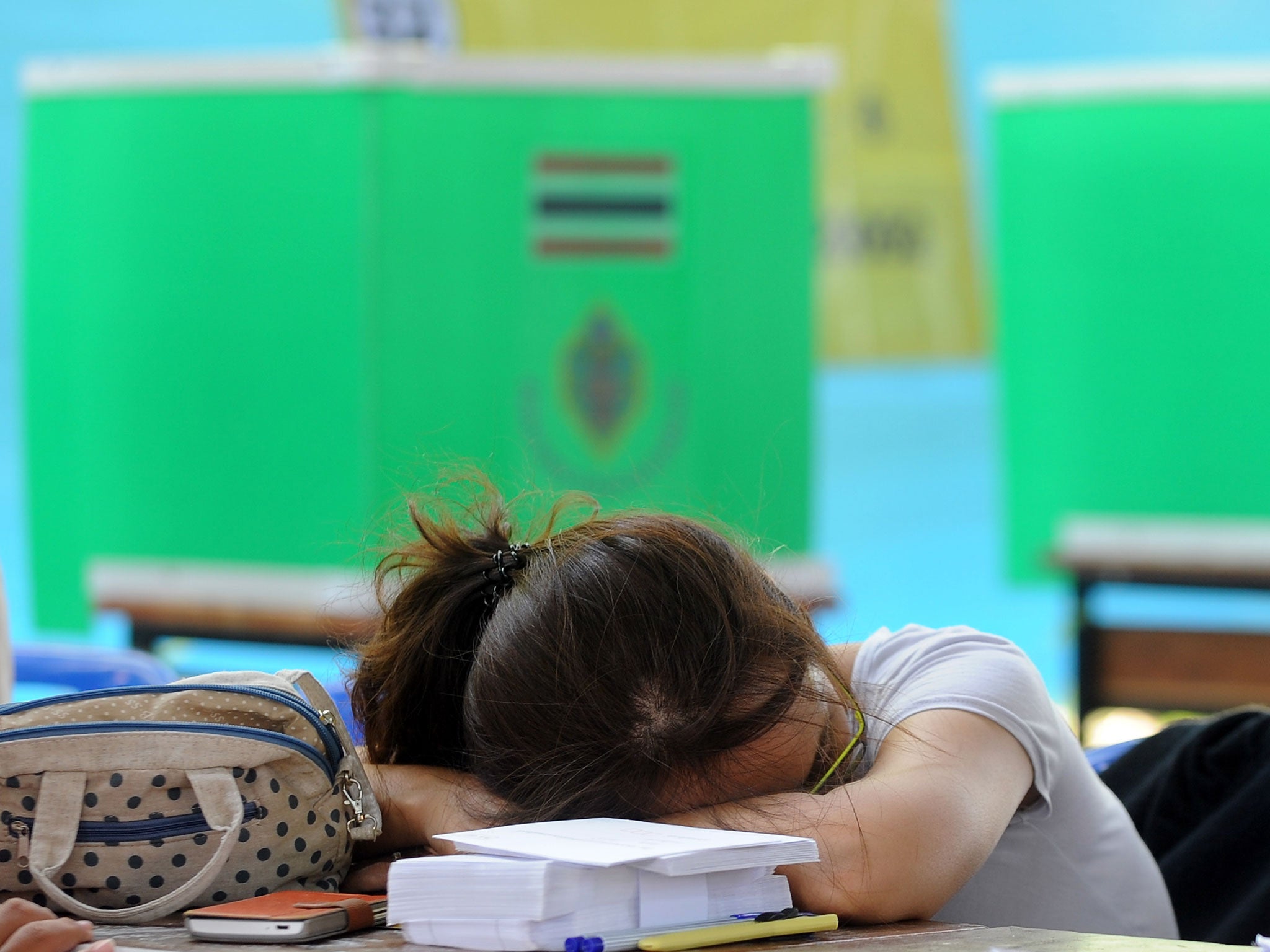Lost sleep could cause 'permanent damage to brain cells' scientists warn
Study found sleep-deprived mice lost up to 25 per cent of their brain cells

Your support helps us to tell the story
From reproductive rights to climate change to Big Tech, The Independent is on the ground when the story is developing. Whether it's investigating the financials of Elon Musk's pro-Trump PAC or producing our latest documentary, 'The A Word', which shines a light on the American women fighting for reproductive rights, we know how important it is to parse out the facts from the messaging.
At such a critical moment in US history, we need reporters on the ground. Your donation allows us to keep sending journalists to speak to both sides of the story.
The Independent is trusted by Americans across the entire political spectrum. And unlike many other quality news outlets, we choose not to lock Americans out of our reporting and analysis with paywalls. We believe quality journalism should be available to everyone, paid for by those who can afford it.
Your support makes all the difference.Sleepless nights could prove more damaging than previously thought, after the results of a new study suggested sleep deprivation can lead to a permanent loss of brain cells.
The “disturbing” research found mice experiencing chronic sleep loss saw 25 per cent of their brain cells die, according to research published yesterday in the Journal of Neuroscience.
Now, scientists fear humans could suffer the same neuronal injuries – which would also make attempting to ‘catch up’ on missed sleep pointless.
Researchers at the University of Pennsylvania School of Medicine set out to determine if chronic sleep loss damages brain cells involved in keeping the brain alert, and if this damage can be reversed.
Lead author Sigrid Veasey, a professor at the University, said previous research on humans has shown attention span and several other aspects of cognition do not return back to normal even with three days of recovery sleep, raising the possibility that permanent damage had been sustained.
The team studied lab mice, keeping them awake for periods of time that were similar to human sleep loss, such as when people work night shifts or long hours.
After three days of shift-work sleep patterns, mice lost 25 per cent of brain cells in part of the brain stem.
"No one really thought that the brain could be irreversibly injured from sleep loss." Dr Veasey said. "This is the first report that sleep loss can actually result in a loss of neurons."
She said more research will need to be undertaken to see if people who regularly miss out on sleep could also suffer permanent brain cell damage.
If a similar phenomenon does occur in humans, the researchers believe it could be possible to develop a treatment that would protect against the harmful effects of losing sleep.
"If we can show that we can protect the cells and wakefulness, then we're launched in the direction of a promising therapeutic target for millions of shift workers."
The team also plans to examine shift workers post-mortem for evidence of increased brain cell loss and signs of disorders such as Alzheimer’s and Parkinson’s, since some previous mouse models have shown that cell damage can accelerate the course of those diseases.
Join our commenting forum
Join thought-provoking conversations, follow other Independent readers and see their replies
Comments